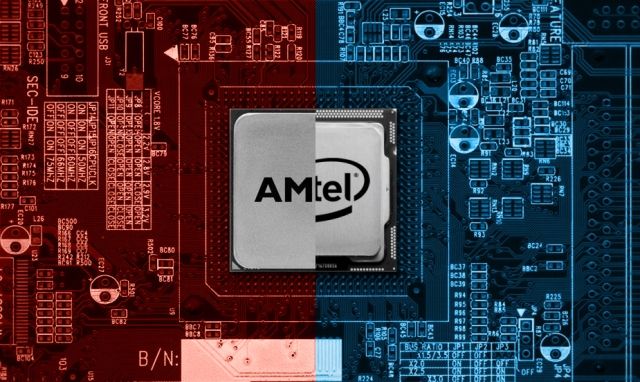
The Intel vs AMD debate is heating up as the release date of AMD Ryzen gets closer and closer.
Intel has now reportedly started playing dirty in an attempt to undermine AMD and kick its Ryzen products out of market share. Reports have also alleged that that Intel has approached some big customers like Dell, HP and Lenovo with 'incentive rebates' and other 'special promotions' to exclusively use Intel chips, and urging them to make big buying decisions before they could evaluate competing rival AMD products. The embargo on Ryzen reviews is going to be lifted on March 2nd, and that is when independent reviews are going live.
Intel PR has sent a “call us before you write” e-mail to some of the press reviewing AMD Ryzen chips.
Charlie Demerjian of semiaccurate.com reports -
Intel PR sent out a last-minute “call us before you write” email to most of the press, but not SemiAccurate, after hours last night. You could infer that they are suddenly really worried about something.
This seems like a shameless attempt at sabotaging the highly anticipated AMD Ryzen's release by trying to influence the independent reviewers.
Is it the first time a multi-national conglomerate like Intel has played Dirty?
Even though it seems ridiculous to even think of such a large company stooping so low, it's unfortunately nothing new. AMD is fearful that Intel will go back to the very same dirty tricks it used a decade ago to reduce the impact of Ryzen.
Intel has been investigated by several international regulatory bodies that resulted in fines and penalties for the microprocessor giant. Back in 2009, Intel was fined $1.4 billion dollars by the EU which Intel paid as recently as 2014. In another instance, Intel had to pay $1.25 Billion Dollars to AMD recently for 'unfair' & 'Deceptive' conduct after getting investigated by the US Federal trade Comission (FTC).
However, these investigations do not tell the entire story, as the efforts of Intel controlling the market goes further back than just a few years, and these are only two recent examples of shady anti-consumer practices resulting in Intel getting reprimanded, and even a decade after all the backlash Intel has received, it seems that Intel's dirty little box of tricks still has some magic left in it.

So, Who wins and who Loses in this game?
The truth is that it is the end user (you and me) that suffers the most out of all this, not the rival companies. The recent huge price cut by Intel on it's Latest chips is proof that it is charging heavy profits and is engaged in anti-competitive practices. A couple of billion may seem like a dream for us regular folk, but is pocket change for a company that controls the entire computer market. This kind of monopoly is equal to being a 'Super-power' in the modern world where everything is based on computers. It is up to the consumer to research properly, and give the underdogs of the market a chance before deciding on buying a new product.
Sources: 1, 2, 3, 4
Thank you for reading. If you like what you see here, please upvote and follow for more interesting stuff like this!
See more of my stuff here
* All images are assumed to be from public domains.*
I think the huge price cut by Intel is more indicative of the fact that they haven't really had any competition at the high end for a very long time. Ryzen changes that. Not that I don't think Intel has played some dirty tricks. But the fact that AMD FINALY has a new contender is very good for consumers, regardless of the dirty tricks Intel may try.
Downvoting a post can decrease pending rewards and make it less visible. Common reasons:
Submit
Yes, they haven't had much competition lately, but that doesn't mean that they should stop innovating. Intel has done almost nothing after the Core i 2nd generation. Still, I have no doubt in my mind that they'll have an answer to Ryzen in a year or two. They probably have geniuses working on the next big thing right now in their labs. I'm just glad we'll see healthy competition now.
Downvoting a post can decrease pending rewards and make it less visible. Common reasons:
Submit